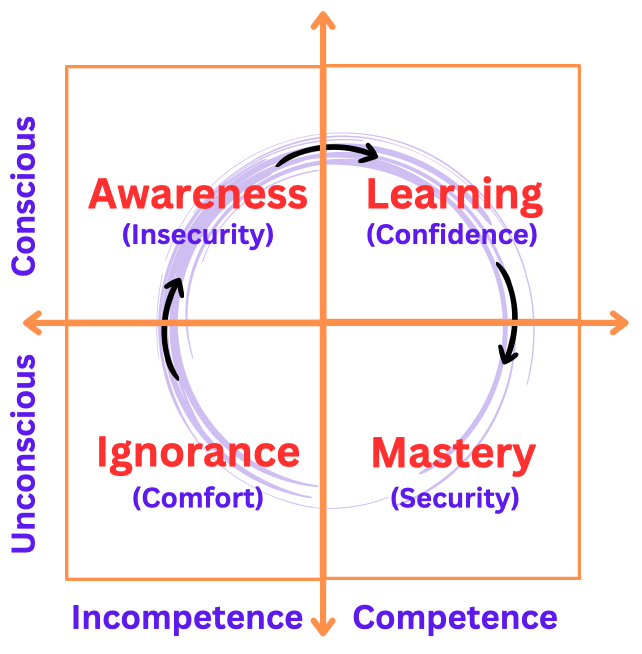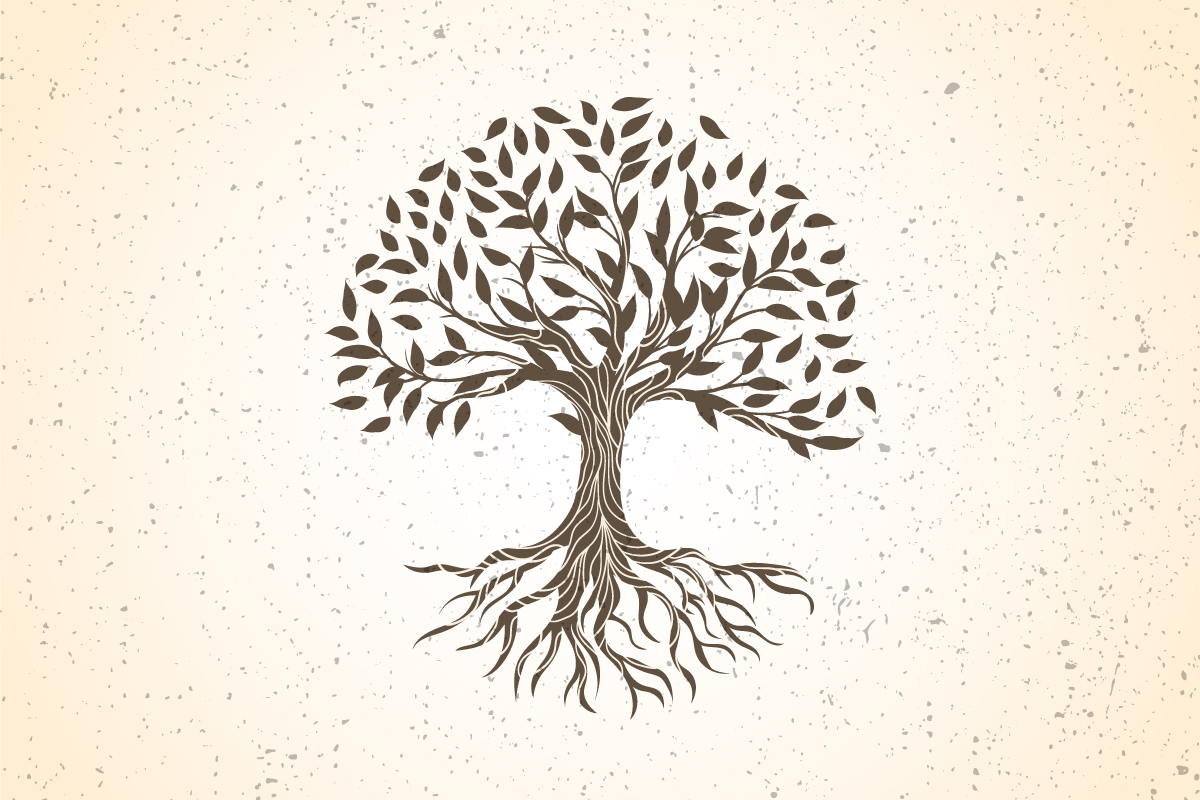As humans, we are constantly learning and growing. Whether we realize it or not, we are always acquiring new knowledge and skills, and adapting to the world around us. However, not all learning is equal, and some methods are more effective than others. Moreover, learnings alone won’t make us grow and transform. We must also transfer the acquired learnings to our specific reality, apply it, and practice its application until it becomes part of how we behave. By understanding the four stages of learning, also known as the four stages of competence, we can develop a more effective approach to personal growth and development.
There is some debate among scholars and practitioners about the true origin of the four stages of learning model. Some attributed to Abraham Maslow, but others affirm that the four stages of Learning were introduced by Noel Burch in the 1970s; however, there is evidence the model was first used by Martin M. Broadwell in 1969 in an article where he was explaining the practice of “teaching for learning” using the competence model. Despite its age, this model remains relevant and widely used today because it provides a clear framework for understanding how we learn and develop new skills. In recent years, advances in neuroscience have confirmed the validity of the model by demonstrating how our brains forms new neural pathways during the learning process. Additionally, the importance of self-awareness and reflective practice in effective learning has become increasingly recognized. The Four Stages of Learning provides a useful tool to assess our own learning and growth, and to become more self-aware in our learning journey.
Learners in the stages of learning model will find themselves falling into 1 of 4 stages as they transit the learning journey: unconscious incompetence, conscious incompetence, conscious competence, or unconscious competence.

The four stages of learning
Stage 1: Unconscious Incompetence
The first stage of learning is known as unconscious incompetence. At this stage, we are unaware of our own lack of knowledge or skills. We may not even realize that there is something we need to learn or improve upon. This can lead to complacency and a lack of motivation to change. To progress to the next stage, we need to recognize that there is a gap in our knowledge or skills.
Stage 2: Conscious Incompetence
The second stage of learning is conscious incompetence. At this stage, we become aware of our own lack of knowledge or skills, but we are not yet proficient in the desired behavior or skill. This can be a frustrating stage, as we may feel overwhelmed or discouraged by our lack of progress. However, it is important to remember that this stage is an essential part of the learning process. By acknowledging our weaknesses, we can begin to take steps to improve and develop our skills.
Stage 3: Conscious Competence
The third stage of learning is conscious competence. At this stage, we have developed the necessary skills or knowledge, but we must still consciously focus on applying them. This can require a great deal of effort and attention, as we may need to break down the behavior or skill into smaller, manageable steps. With practice, we can gradually develop a more automatic and efficient process for applying the skill or behavior.
Stage 4: Unconscious Competence
The fourth and final stage of learning is unconscious competence. At this stage, the skill or behavior has become second nature, and we are able to perform it without conscious effort or attention. This stage represents mastery, and it can be a very rewarding experience. However, it is important to remember that even at this stage, there is always room for improvement and growth.
Applying the Four Stages of Learning for Personal Growth and Development
By understanding the four stages of learning, we can develop a more effective approach to personal growth and development. Here are some tips for each stage:
- Unconscious Incompetence: Be open to feedback and self-reflection. Look for areas where you may need to improve and be willing to ask for help when necessary.
- Conscious Incompetence: Set achievable goals and break down the desired behavior or skill into smaller steps. Celebrate small victories along the way and be patient with yourself as you learn and grow.
- Conscious Competence: Practice, practice, practice! Focus on applying the skill or behavior in a variety of situations and look for opportunities to receive feedback and refine your approach.
- Unconscious Competence: Look for ways to continue to challenge yourself and improve. Seek out opportunities for growth and development and be willing to take risks and try new things.
Conclusion
The four stages of learning provide a powerful framework for personal growth and development. By understanding these stages and applying them to our own lives, we can become more effective learners and create lasting change in our behaviors and habits. Whether we are looking to develop new skills, overcome bad habits, or simply grow as individuals, the four stages of learning can help us achieve our goals and reach our full potential.




